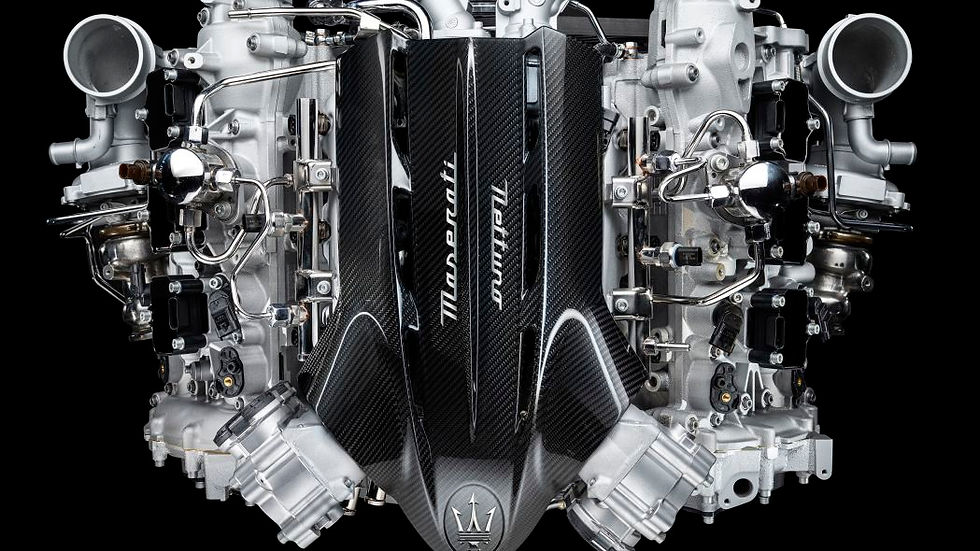Maserati details the new, 630-hp V6 that will power its mid-engined MC20 coupe
- Jul 1, 2020
- 2 min read
Updated: Jul 31, 2020

Maserati is done leaning on former sister company Ferrari for technical support. It has unveiled the six-cylinder engine it designed and will build in-house to power the MC20 supercar that's scheduled to make its debut later in 2020.
Ferrari's willingness to develop and/or build engines for Maserati shrank significantly when it split from former parent company Fiat-Chrysler Automobiles (FCA) in early 2016 and became independent. Insiders knew the division would be spun off, so they began designing Maserati's new engine (which is called Nettuno) in 2015 and accelerated the process in 2017. It's a 90-degree, 3.0-liter V6 with a dry sump and a twin-spark, pre-chamber ignition system ro
In this application, it's twin-turbocharged (the turbos are mounted on the outside of the engine rather than in the middle of it) and it's equipped with both direct and indirect fuel injection.
All told, the 485-pound Nettuno engine develops 630 horsepower at 7,500 rpm and 538 pound-feet of torque between 3,000 and 5,500 rpm. It continues revving to a redline of 8,000 rpm.
Matteo Valentini, Maserati's chief engineer, explained the Nettuno engine will ultimately power the company's entire range of vehicles, though he stopped short of naming the specific models that will use it after the MC20. He added the six-cylinder will "bring Maserati back into the world of racing," meaning its output will likely grow in the not-too-distant future. We'll learn more about the engine when the MC20 makes its debut September 9.
What remains to be seen is whether Maserati will replace the V8 available in the Levante and the Quattroporte, or if it will surf the downsizing wave sweeping across the industry. Developed jointly with Ferrari in the early 2010s, that engine makes 590 horsepower when it's bolted in the Levante Trofeo's bay, meaning its output is eclipsed by the Nettuno V6's. Both engines are built around a 90-degree architecture, so the 3.0-liter V6 could turn into a 4.0-liter V8 if it's modular enough to gain a pair of cylinders — and if Maserati sees a market for another eight-cylinder.




Comments